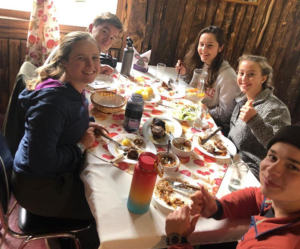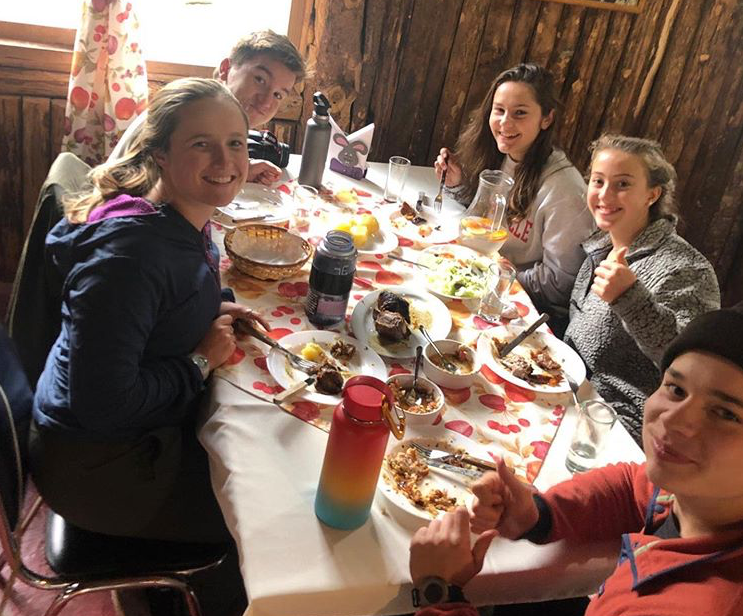En transición a Sud America
As Alzar School transitioned to Chile last week, students and staff strived to embody values of inclusivity and continual learning. As part of this process, we have been reflecting on what it takes to build culturally competent leaders while traveling abroad. One of Alzar School’s six foundations is “cultural exchange”; therefore, our students and staff recognize the importance of multicultural awareness as means to enhance the overall health and well-being of our community and world.
Cultural competence is defined by the National Education Association as “having an awareness of one’s own cultural identity and views about difference, and the ability to learn and build on the varying cultural and community norms.” As well as “the ability to understand the within-group differences that make each student unique, while celebrating the between-group variations” that build strong communities via diverse values, beliefs and worldviews.
At Alzar School, we begin preparing students for a successful transition to a new culture by modeling and encouraging our 10-Elements of Leadership. Particularly, emphasis on “360-degree thinking” and “continual learning and development” applies to our international travel experiences. In addition to the approaches to leadership development that Alzar School takes from the fore, we recognize that our students will benefit from direct support and advice during our transition to Chile.

Some key points to share include notes from a study by cognitive psychologist, Dr. Louise Rasmussen, and a team of researchers whose qualitative data identifies twelve core aspects to developing cultural competency. The following four aspects align well with the Alzar School experience (https://www.globalcognition.org/cross-cultural-competence/):
- Understand the culture within yourself: Keep aware of the fact that you see the world in a particular way because of your own background, personal history, and culture.
- Learn about the new culture efficiently: You can’t learn everything about the culture before your trip. It’s unrealistic. Focus on learning a few things that fit your interests, and use those to make connections and learn more while you are abroad.
- Control how you present yourself: Be deliberate about how you present and express yourself. Sometimes you’ll be most effective if you’re just yourself. Other times you have to adapt how you present yourself to the culture you are in to be most effective.
- Reflect and seek feedback: Continue to reflect on and learn from your interactions and experiences after they occur. After an interaction, you can think about whether you got the messages across you intended. You can even ask a local how they think you did.
We look forward to engaging with these concepts further and will have plenty of opportunities to apply them as we jump into our second week of Chilean expeditions.
¡Hasta luego!
About the author: Rachel Ackerman is a Science Teacher and a Blog Coordinator at Alzar School. Feel free to contact her at rackerman@alzarschool.org with comments, concerns, and interesting topics for future blog posts!
Additional Resources:
http://www.cultureready.org/blog/why-leaders-need-cultural-competence

